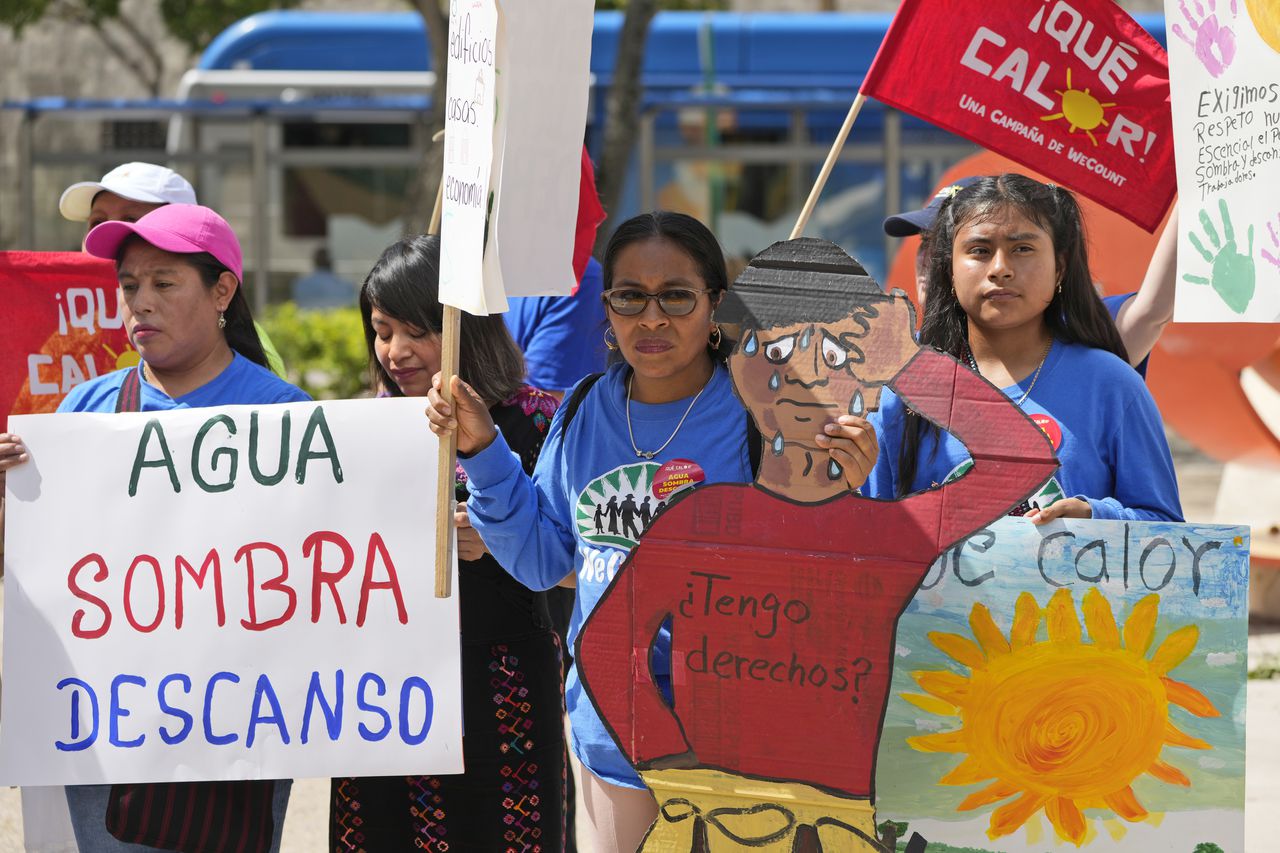Florida is moving forward with legislation that would prohibit cities and counties from adopting mandatory protections against extreme heat — laws that workers say is a blow to labor rights amid increasing climate concerns.
House Bill 433 and Senate Bill 1492 would preempt local ordinances that protect employees and outside workers in industries like agriculture and construction, according to the ACLU of Florida. HB 433 would also prohibit local governments from regulating “any term or condition of employment,” including minimum wage, that exceeds or conflicts with state and federal law.
“While working to feed us, farm workers have died because they were exposed to extremely high temperatures but were denied water, shade and paid breaks,” said Leydy Rangel, a daughter of farm workers and the United Farm Workers Foundation spokesperson. “This will only create a more dangerous work environment for the men and women who do backbreaking work under the sun.”
Heat kills more people in the U.S. each year than any other kind of extreme weather, according to the National Weather Service. A study by NPR and Columbia Journalism found that almost 400 people have died of heat-related illness in the last decade, with Latino workers disproportionately impacted.
Last summer, record-breaking temperatures caused a resurgence of interest in weather policy. Texas passed legislation similar to that of Florida’s, limiting local governments from enacting ordinances for mandatory breaks for outdoor workers. House Resolution 3965, a bipartisan bill introduced by legislators from Arizona, Texas and Nevada in June, would have designated extreme heat as a major disaster under the Federal Emergency Management Agency, but it was stalled.
It is part of a larger trend of states denying explicit worker protections in extreme weather.
Only a few states like California, Oregon, Minnesota and Washington have mandated heat safety measures, according to the United Farm Workers. On…
Read the full article here

Leave a Reply